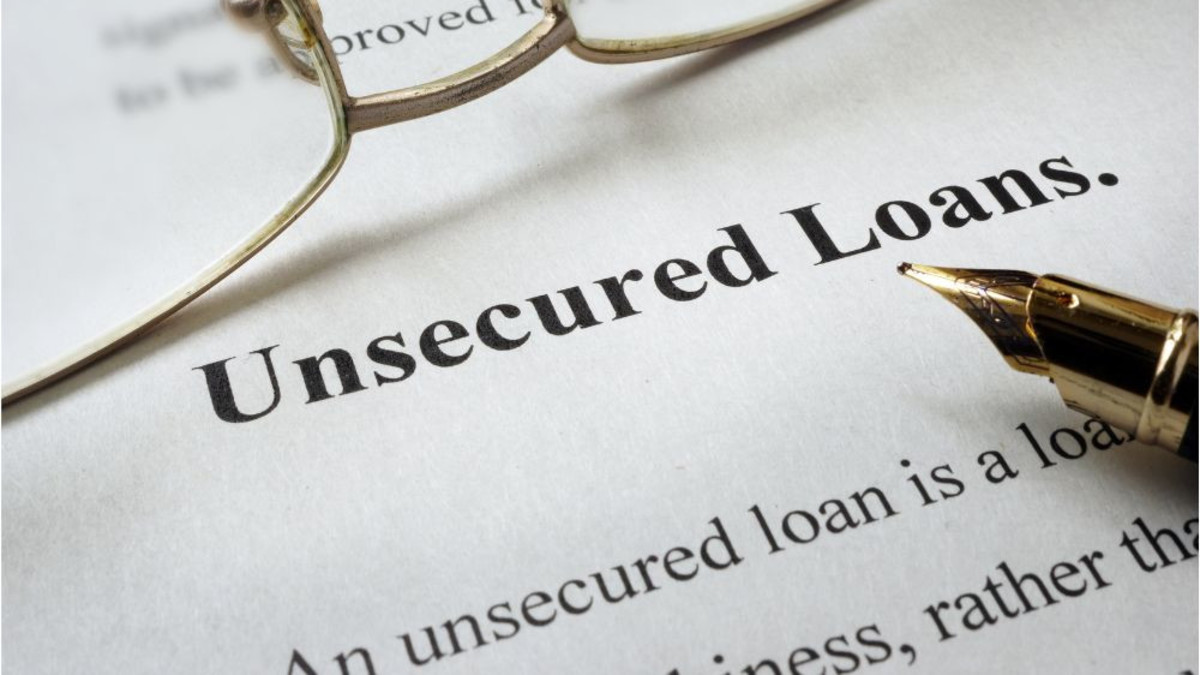Unsecured Loans: What are They and When to be Cautious

Joy Wallet is advertiser-supported: we may earn compensation from the products and offers mentioned in this article. However, any expressed opinions are our own and aren't influenced by compensation. To read our full disclosure, click here.
Fast Facts
Loan type:
Unsecured; needs no collateral
Impact on credit:
Hard credit inquiry
Funds availability:
Quick; as soon as 2 business days
Interest rate:
Varies by the lender
What are unsecured loans?
- APR: 6.99% - 35.99%
- Loan Term: 12-144 months
- Credit Score: Poor, Fair, Good, Excellent
Pros and cons of unsecured loans
- You can access funds faster. Since it's often possible to obtain an unsecured loan with just a signature and a quick look at your credit report and assets, you’ll usually be able to access your money faster than you would with another type of loan.
- Borrowers with good credit can get competitive rates. As far as loan rates are concerned, personal loans are a fairly affordable option. According to the most recent data from the Federal Reserve, the average interest rate on a personal loan is currently 12.36%. If you were to borrow the same amount on one of your credit cards, you’d pay 24.7% in interest, on average.
- No collateral is needed. Since there is no physical asset being put up as collateral for your loan, if you are unable to keep up with your loan payment, nothing will be repossessed. That said, missing a payment or paying late will hurt your credit profile.
- You may face stricter qualifying standards than you would with a secured loan. Since the lender has less recourse with an unsecured loan, they often impose stricter qualifying standards to maximize their chances of being repaid. With that said, qualifying is likely going to be largely based on credit approval, your income, and your debt-to-income ratio.
- Those with lower credit scores may face less favorable loan terms. If your FICO score could use some work, you may be given less favorable repayment terms than someone with a cleaner credit history. In particular, you may be given a higher interest rate and a lower borrowing limit.
Loan terms to consider when shopping for an unsecured loan
- Loan amount: As mentioned above, different loan options may come with different borrowing limits. You’ll want to ensure that the loan amount on your quote is enough to cover your expense.
- Interest rate: The interest rate is a charge passed on to you in exchange for the privilege of borrowing money. In addition to shopping around for the lowest rates, you should determine whether you’re being offered a fixed interest rate, which stays the same for the life of the loan, or an adjustable interest rate, which can change from month to month.
- Annual percentage rate (APR): Where unsecured loans are concerned, the APR combines the interest rate and any fees associated with the loan. For example, if your loan comes with an origination fee, which many lenders charge in exchange for facilitating the borrowing process, that will be included in the annual percentage rate.
- Fees: Additionally, you should also verify if there are any conditional fees associated with your loans, such as late fees or a prepayment penalty.
- Available discounts: Lastly, always be sure to ask about any available discounts. For instance, some lenders will offer an autopay discount if you allow the lender to automatically charge your account each month.
- APR: 6.99% - 35.99%
- Loan Term: 12-144 months
- Credit Score: Poor, Fair, Good, Excellent
FAQs
The bottom line
Joy Wallet is an independent publisher and comparison service, not an investment advisor, financial advisor, loan broker, insurance producer, or insurance broker. Its articles, interactive tools and other content are provided to you for free, as self-help tools and for informational purposes only. They are not intended to provide investment advice. Joy Wallet does not and cannot guarantee the accuracy or applicability of any information in regard to your individual circumstances. We encourage you to seek personalized advice from qualified professionals regarding specific investment issues. Featured estimates are based on past market performance, and past performance is not a guarantee of future performance.
Our site doesn’t feature every company or financial product available on the market. We are compensated by our partners, which may influence which products we review and write about (and where those products appear on our site), but it in no way affects our recommendations or advice. Our editorials are grounded on independent research. Our partners cannot pay us to guarantee favorable reviews of their products or services.
We value your privacy. We work with trusted partners to provide relevant advertising based on information about your use of Joy Wallet’s and third-party websites and applications. This includes, but is not limited to, sharing information about your web browsing activities with Meta (Facebook) and Google. All of the web browsing information that is shared is anonymized. To learn more, click on our Privacy Policy link.
Images appearing across JoyWallet are courtesy of shutterstock.com.
Tara Mastroeni is a real estate and financial writer whose work has appeared on Forbes, Business Insider, LendingTree, Realtor.com, ApartmentTherapy.com, The Motley Fool, and Freshome.com.









